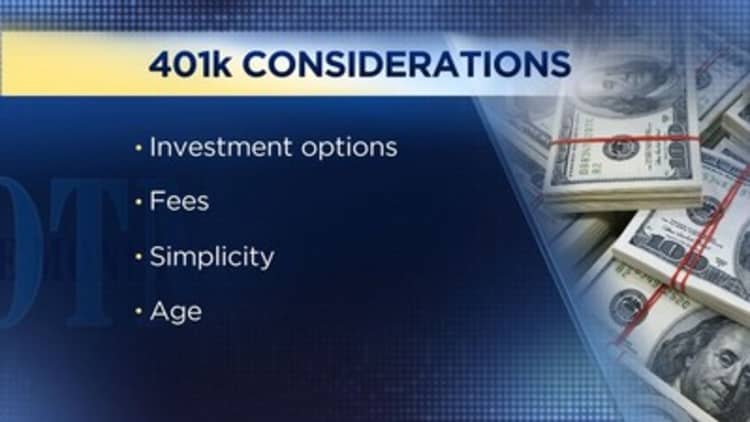
As you start a new job, don't forget about your old 401(k).
How you choose to juggle accounts from former workplaces could make a big difference in how much you'll ultimately have at retirement, said Alison Borland, executive vice president for defined contribution solutions at benefits administrator Alight Solutions. It's important to understand your options and take time to ask questions and figure out your best strategy.
"The long-term implications can be significant, financially," she said. "There's a lot at stake."
Broadly speaking, you have three options for a retirement account from a former workplace:
1) Leave it where it is.
2) Roll it into your new employer's plan.
3) Roll it into an individual retirement account.
(Technically, you have a fourth option: Cash out the account. But that's a bad idea, said Borland. Not only will you owe taxes and early withdrawal penalties on those funds, you'll lose out on the growth of that money over the rest of your career. A 2016 Fidelity report estimated that a 30-year-old worker cashing out a $16,000 401(k) could have had $81,000 by age 67 if they had left that balance alone.)
How to decide
First, figure out what you can't do. While many employers will accept rollovers from another 401(k), not all do, said certified financial planner Mark La Spisa, president of Vermillion Financial Advisors in South Barrington, Illinois. And if you had less than $5,000 in a qualified plan with a former employer, government regulations may allow the plan sponsor to push you out even if you'd rather stay put.
Once you've narrowed the options to what you can do, then it's time to start weighing what you should do.
Assessing account and investment fees is key. Employers — especially large companies — are often able to negotiate lower fees than you could get on your own, said La Spisa. But not every 401(k) is a winner, either. You'll need to compare.
Employees considering their options for an old workplace plan should also compare available investments, said Borland. You might find one strategy makes it easier to adequately diversify, or better meets your particular investment needs.
It can help to weigh your choices with a financial advisor, said La Spisa. Other elements of your financial situation, like how early you plan to retire or your retirement income needs, may make one option more favorable than another.
Executing the plan
If you opt to leave your account alone, do keep tabs on it, said La Spisa. It's not unheard of for workers to neglect the management of an old account or even forget they have it, period.
You've decided to roll over the funds? Don't touch the money until you've checked in with both the current provider and the destination provider on what steps you'll need to follow to make a qualified rollover, said Borland. (One misstep, and you've made a tax- and penalty-incurring distribution.)
"Follow those instructions very carefully," she said.
If you're rolling over an account from a job you recently left, make sure that you're not inadvertently leaving money behind, said La Spisa. You may have earned say, a profit-sharing contribution that has yet to post.
"It's not a bad idea to track old accounts until you confirm that," he said.
"On the Money" airs on CNBC Saturdays at 5:30 a.m. ET, or check listings for air times in local markets.


